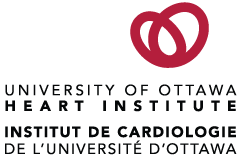Have you experienced any of the following medical complications during pregnancy?
Preeclampsia
This condition generally occurs after the 20th week of pregnancy and is marked by a sudden increase in blood pressure (>140/90 mm Hg) and protein in the urine. Preeclampsia warning signs include:
- High blood pressure
- Protein in the urine
- Sudden weight gain
- Headaches
- Swelling of the face or hands
- Blurred or altered vision
- Chest pain
- Pain in the upper right abdomen area
- Nausea and vomiting
- Breathing with difficulty, gasping or panting
Gestational hypertension (also referred to as pregnancy induced hypertension)
After week 20 in pregnancy a woman develops high blood pressure (>140/90 mm Hg) which goes away after delivery. Women who may have an increased risk of developing gestational hypertension:
- First-time moms
- Women whose sisters and mothers had pregnancy induced hypertension
- Women carrying multiples
- Women younger than age 20 or older than age 40
- Women who had high blood pressure or kidney disease prior to pregnancy
Gestational diabetes?
This condition results in a woman without diabetes develops high blood sugar levels during pregnancy. You're more likely to develop gestational diabetes if you:
- are age 25 or older
- have a close relative who has diabetes
- are overweight, especially if your body mass index (BMI) is 30 or higher
- have polycystic ovarian syndrome (PCOS)
- have a medical condition that makes diabetes more likely, such as glucose intolerance
- take certain medications like glucocorticoids (for asthma or an autoimmune disease), beta-blockers (for high blood pressure or a rapid heart rate), or antipsychotic drugs (for mental health problems)
- have had gestational diabetes before
- have had a big baby before (macrosomia)
- are African American, Native American, Asian American, Hispanic, or Pacific Islander
If you had any of the pregnancy related conditions, contact your primary provider for a referral to our CardioPrevent Postpartum Program. We can work together to reduce your risk of future cardiovascular disease and its risk factors. Check out some of our results!

